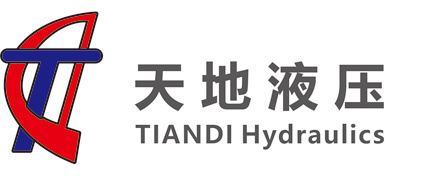GET THE LATEST NEWS FROM THE COMPANY
NEWS CATEGORY
Understanding Small Hydraulic Units: The Power Behind Efficient Industrial Operations
Published:
2025-04-24 13:00
Small hydraulic units are essential components of fluid power systems used in various industrial applications. These compact units are designed to generate, control, and transmit hydraulic energy through the movement of fluids, making them integral to many machinery and equipment. Their versatility allows them to be employed in manufacturing, construction, and even automotive industries, where the need for reliable and efficient power sources is paramount.
One of the key features of small hydraulic units is their ability to provide significant force in a relatively compact size. This makes them ideal for applications where space is limited but power requirements remain high. By utilizing hydraulic principles, these units convert mechanical energy into hydraulic energy, allowing them to perform tasks such as lifting, pushing, and pulling with remarkable efficiency.
In addition to their compact design, small hydraulic units offer a range of advantages. They are known for their precise control, which is vital in applications requiring accurate movements or adjustments. The ability to fine-tune the force and speed of operation allows operators to achieve desired outcomes with minimal waste and increased safety. Furthermore, hydraulic systems are often more efficient than their mechanical counterparts, leading to lower energy consumption and reduced operational costs.
Small hydraulic units are commonly found in hydraulic pumps, which play a crucial role in the overall functionality of hydraulic systems. These pumps draw hydraulic fluid from a reservoir and pressurize it, enabling it to flow through the hydraulic circuit to power various actuators such as cylinders and motors. The choice of pump size and type is critical to the efficiency of the hydraulic system, as it impacts both performance and energy usage.
The applications of small hydraulic units are extensive. In manufacturing, they are used in automated assembly lines, robotic arms, and material handling equipment. In construction, small hydraulic units are essential for operating equipment such as excavators, forklifts, and compactors. The automotive industry also relies on hydraulic systems for lifts, presses, and other machinery that require precise control and power.
In conclusion, small hydraulic units are a vital component of modern industrial operations, enabling efficient power transmission and control in various applications. Understanding their functionality and benefits can help businesses optimize their operations and improve overall productivity. As industries continue to evolve, the role of small hydraulic units will remain crucial in driving innovation and efficiency in fluid power systems.
One of the key features of small hydraulic units is their ability to provide significant force in a relatively compact size. This makes them ideal for applications where space is limited but power requirements remain high. By utilizing hydraulic principles, these units convert mechanical energy into hydraulic energy, allowing them to perform tasks such as lifting, pushing, and pulling with remarkable efficiency.
In addition to their compact design, small hydraulic units offer a range of advantages. They are known for their precise control, which is vital in applications requiring accurate movements or adjustments. The ability to fine-tune the force and speed of operation allows operators to achieve desired outcomes with minimal waste and increased safety. Furthermore, hydraulic systems are often more efficient than their mechanical counterparts, leading to lower energy consumption and reduced operational costs.
Small hydraulic units are commonly found in hydraulic pumps, which play a crucial role in the overall functionality of hydraulic systems. These pumps draw hydraulic fluid from a reservoir and pressurize it, enabling it to flow through the hydraulic circuit to power various actuators such as cylinders and motors. The choice of pump size and type is critical to the efficiency of the hydraulic system, as it impacts both performance and energy usage.
The applications of small hydraulic units are extensive. In manufacturing, they are used in automated assembly lines, robotic arms, and material handling equipment. In construction, small hydraulic units are essential for operating equipment such as excavators, forklifts, and compactors. The automotive industry also relies on hydraulic systems for lifts, presses, and other machinery that require precise control and power.
In conclusion, small hydraulic units are a vital component of modern industrial operations, enabling efficient power transmission and control in various applications. Understanding their functionality and benefits can help businesses optimize their operations and improve overall productivity. As industries continue to evolve, the role of small hydraulic units will remain crucial in driving innovation and efficiency in fluid power systems.
small hydraulic unit
previous page
previous page
Related news

